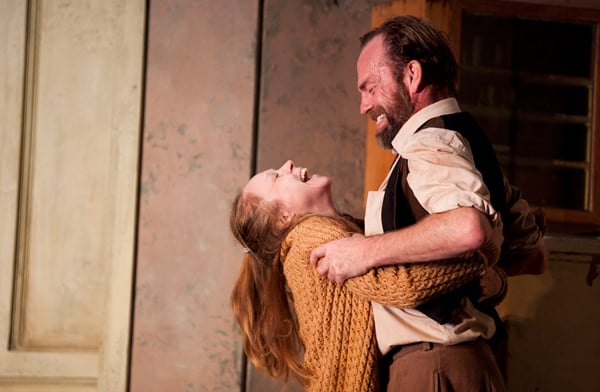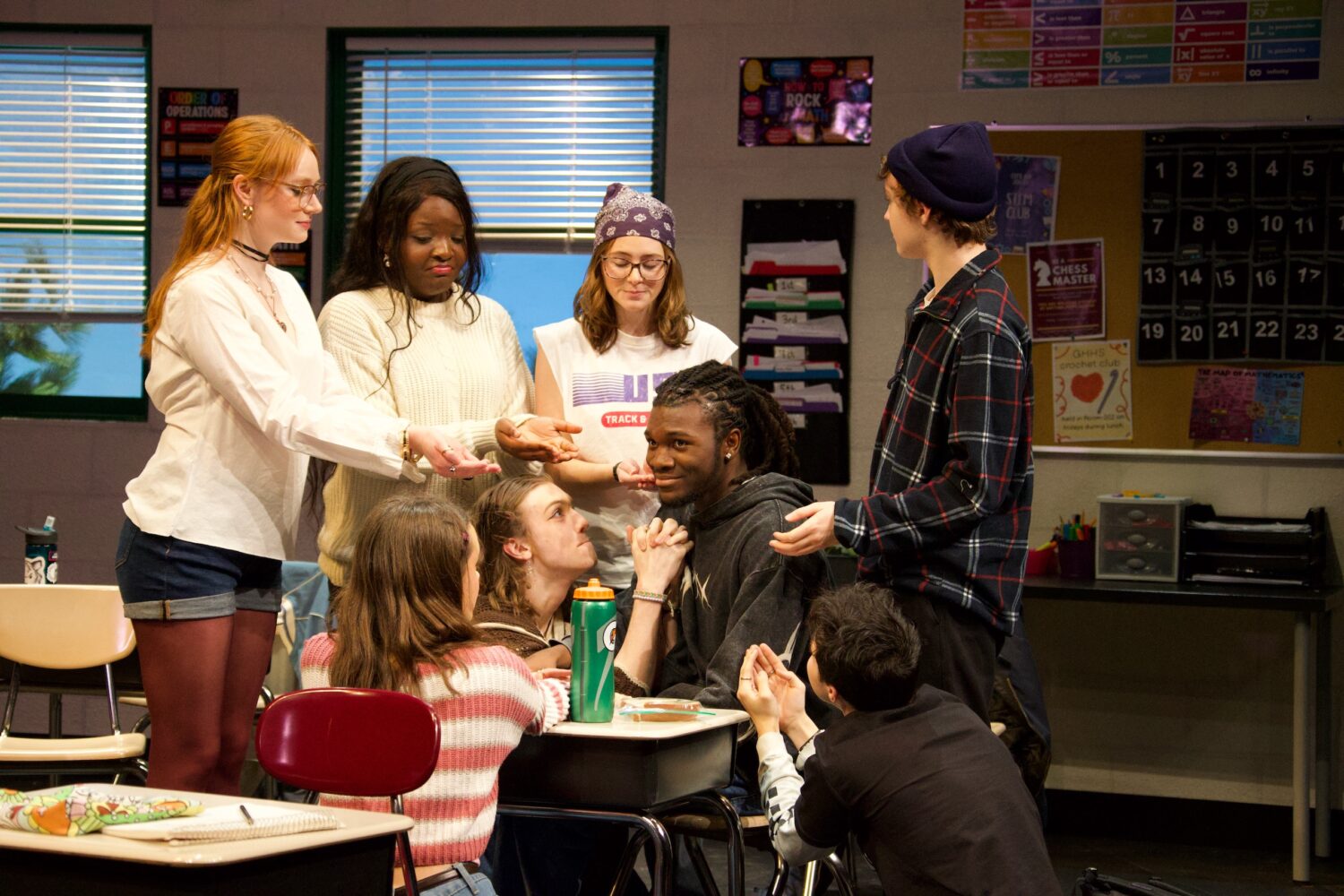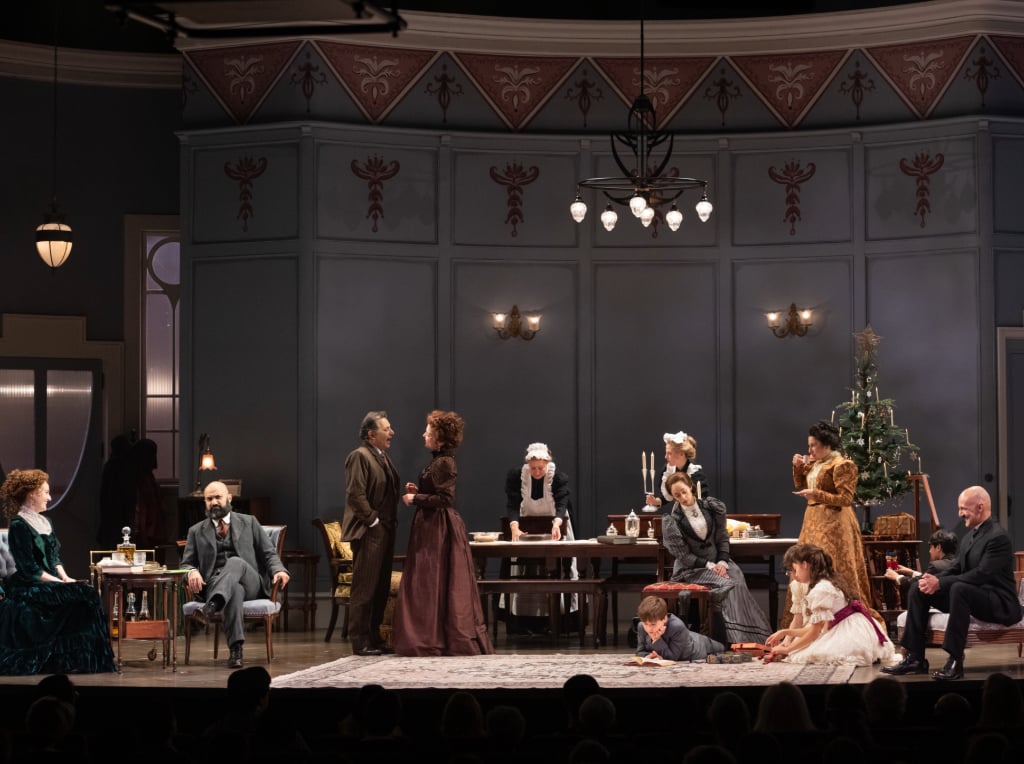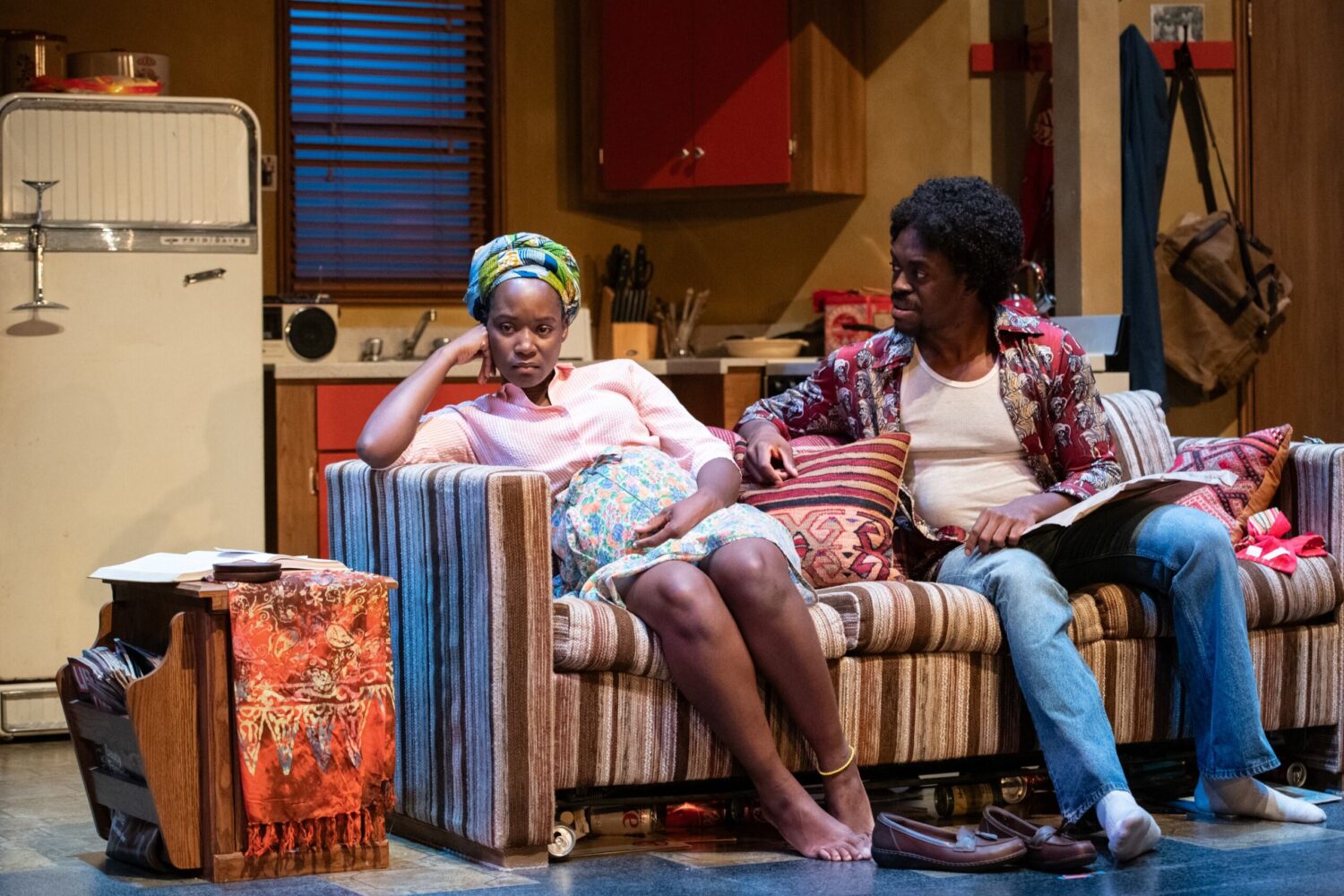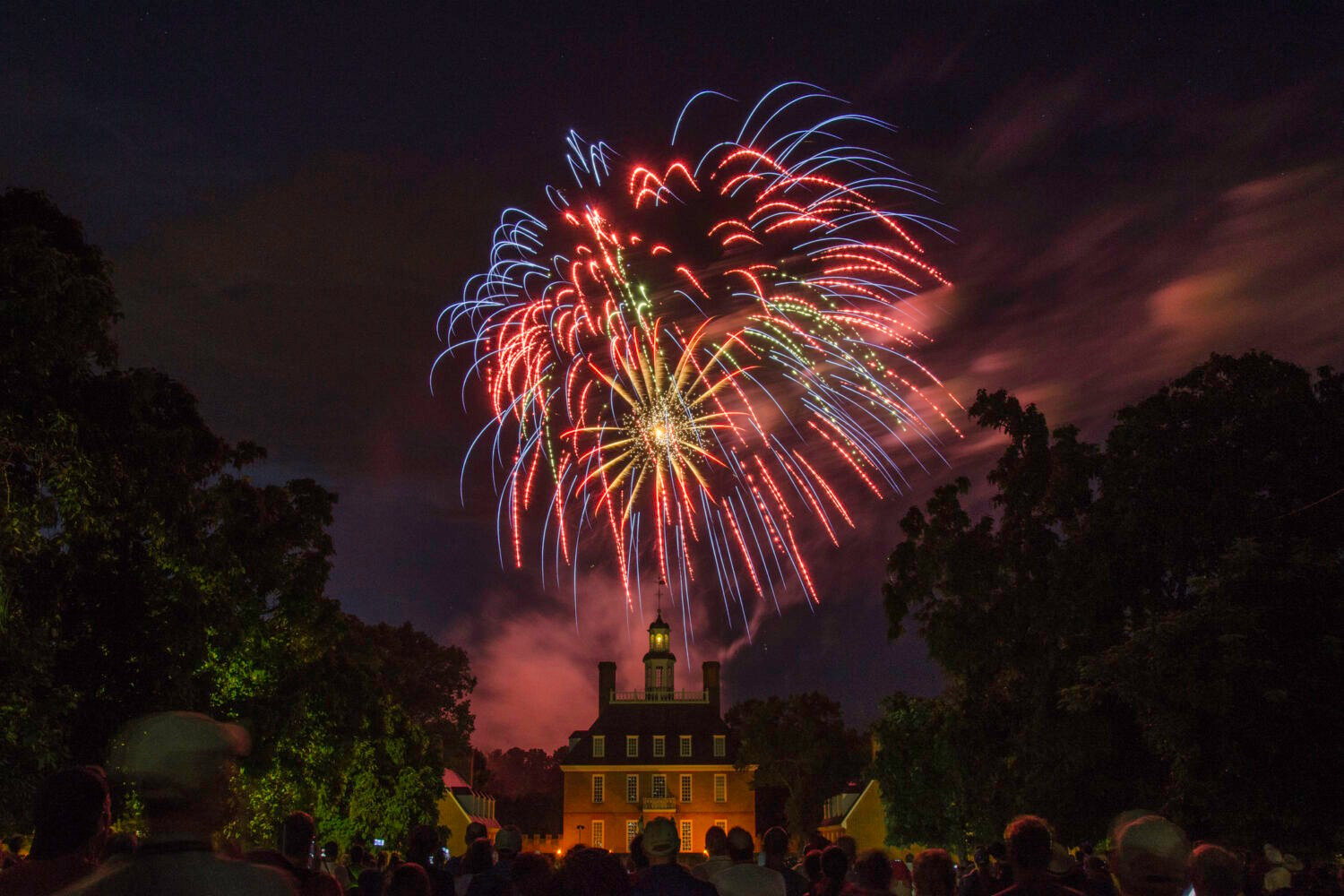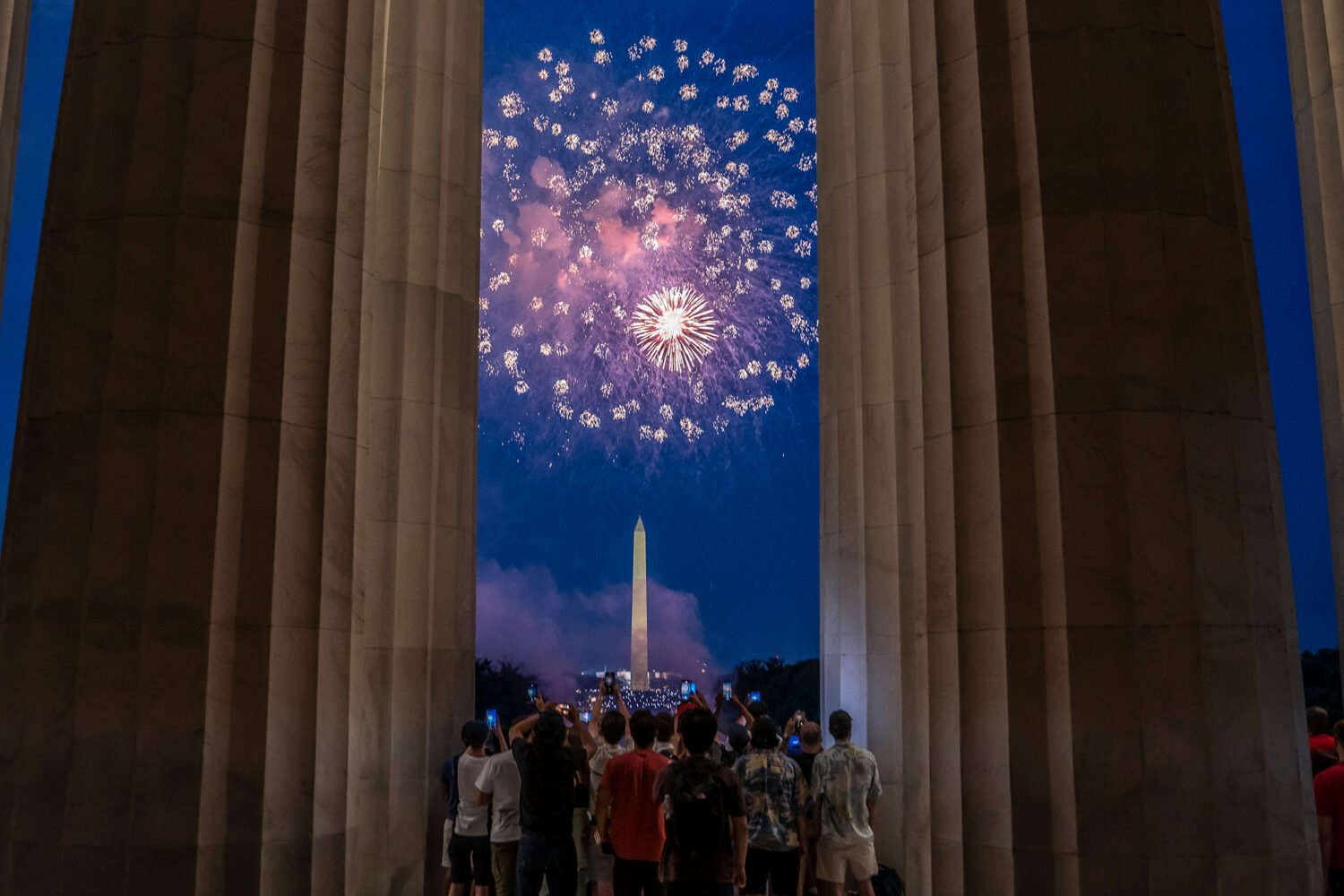Hayley McElhinney as Sonya and Hugo Weaving as Astrov. Photograph by Lisa Tmasetti
☆☆☆☆
Anyone who’s ever felt trapped in a sense of existential despair—or been compelled to drown said despair by diving headfirst into a vodka bottle—can learn a lot from Anton Chekhov. His tragically wise, comically morose characters make our 21st-century navel-gazing look positively paltry by comparison, as they cling to jokes instead of Prozac and embrace nihilism as a veritable art form.
“We are blessed with imagination to create . . . and all we’ve done is destroy,” says a doctor in Andrew Upton’s brilliant new adaptation of Chekhov’s Uncle Vanya, possibly aware that his own talent and youth have been similarly wrecked by years of boozing and hopelessness. Dr. Astrov (played by the remarkably versatile Hugo Weaving) is one of many depressed characters illuminated in this production by the Sydney Theatre Company, currently experiencing an extended period of brilliance at the hands of Upton and his wife, Academy Award–winning actress Cate Blanchett. Originally written in 1897 but set by Hungarian director Tamas Ascher at some unspecified point in the 1950s, Uncle Vanya takes place on a large, moldering Russian estate, run by the moody, unfulfilled Vanya (Richard Roxburgh) and his dowdy niece, Sonya (Hayley McElhinney).
The gloomy but nevertheless efficient lives of Vanya, Sonya, Vanya’s mother, Maria (Sandy Gore), Sonya’s old nurse (Jacki Weaver), and a neighbor, Waffles (Anthony Phelan), are interrupted when Sonya’s father, an ineffectual university professor (John Bell) comes to visit with his much younger, glamorous wife, Yelena (Cate Blanchett). Yelena, a spoiled and sybaritic type who visibly recoils from her aging invalid of a husband, is effortlessly charismatic, provoking jealousy from Sonya and reminding both Vanya and Dr. Astrov of everything their lives lack. While conflict rages around her, Yelena sits, comfortably idle, in a deck chair and flicks through a paperback, seemingly bored by the inconvenience.
Ascher, who speaks no English and directed the production almost entirely through a translator, combines a brilliance with small gestures (one character gazes longingly at a glass; Yelena wipes her mouth after kissing her husband) with an inherent appreciation of the threads of despair and absurdity that weave through Chekhov. Setting the action during the zenith of communism, enhancing the dismal mindset and black humor of the writing and a sparse, almost surreal approach to language, brings a new relevance to the play. Vanya, who pays himself a minimal salary and often can’t eat, sends thousands every month to the professor, comforted that he’s doing his part. The professor, oblivious to the hardship around him, suffers from a vast range of ailments he refuses to treat. His pompous, self-absorbed lecturing almost comes across as more feudal and Marie Antoinette–esque than anything else.
If the Sydney Theatre Company’s production of A Streetcar Named Desire, which came to the Kennedy Center in 2009, felt like a starring vehicle for the flawless Blanchett, Vanya is much more of an ensemble production. Nearly every cast member, from the tragically hopeless Roxburgh to the brilliantly expressive McElhinney, is mesmerizing to watch. Weaving, familiar to most from his role as Agent Smith in The Matrix trilogy, seems to summon up hints of another character here: his compelling, masked anarchist in V for Vendetta. As a helplessly charismatic and self-destructive environmentalist (his character worships forests but despairs of what may happen to them), he seems trapped, like the others, in a spiral of drunkenness and futility.
Zsolt Khell’s set, a vast and lonely room, feels like a cross between a Restoration Hardware catalog and an episode of Hoarders, adding to the overall air of poverty and carelessness. Gyorgi Szakacs’s costumes are notable for their lack of subtlety—Blanchett, decked out in scarlet like a silent movie star, only seems more out of place among the faded brown hues of the other characters’ garb. Somehow, the unrestrained Australian accents of the cast work extraordinarily well, as the wide range of dialects define how sharply status differs (and has changed) among the various characters, from the working-class brogue of Nanny to the refined posturings of Dr. Astrov. Depression, this show reminds us, is no modern phenomenon. But it does, occasionally, come hand in hand with moments of luminous brilliance.
Uncle Vanya is at the Kennedy Center’s Eisenhower Theatre through August 27. Tickets ($59 to $135) are available through the Kennedy Center’s Web site.
Subscribe to Washingtonian
Follow Washingtonian on Twitter
Follow the After Hours Blog on Twitter
More>> After Hours Blog | Arts & Events | Happy Hour Finder | Calendar of Events

